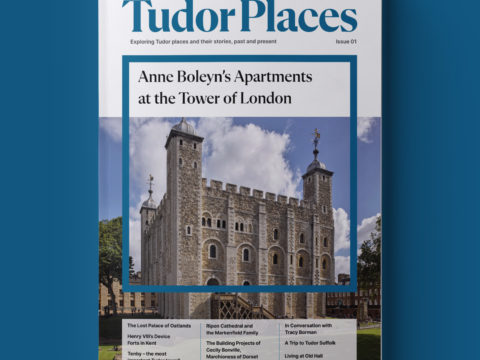Thomas More: Life Story
Chapter 3 : Legal Training
More joined the New Inn, one of the Inns of Chancery clustered around Chancery Lane, between the city of London and that of Westminster. There are at least 10 different Inns of Chancery, which were affiliated to the more senior Inns of Court.
The purpose of the Inns of Chancery was to teach English common law. Just like the texts of Aristotle and the doctors of the Church, legal texts had become complex constructions of precedent and repeated interpretations. Law was conducted in a mixture of languages – Parliamentary statutes were written in Latin, as were the official legal papers such as writs, indictments, and summonses. The courts themselves were conducted in a strange form of bastardised Norman French, known as Law French, although most of the pleadings and witness statements were taken in English.
One of the aspects of law which often made for apparent injustice was the importance of using the correct precedent or language. Many cases became mired in arguments about whether the correct process or type of writ had been used. (For an excellent fictional exposition of the Tudor courts, CJ Sansom’s Shardlake series is hard to beat).
It was in the law courts that a man with More’s talents in disputation and rhetoric could come into his own. There were no written submissions - everything was pleaded verbally and notes were taken and compiled into the annual yearbooks which recorded judgements.
During More’s time at the Inns of Court, he would have been profoundly influenced by the work of Sir John Fortescue (d. 1479) who had been Chief Justice of the King’s Bench under Henry VI. He wrote the treatise ‘De Laudibus Legum Angliae’, usually translated as ‘Commendation of the Laws of England.’ Although not published until after More’s death, it was widely disseminated in manuscript form. Its central arguments concerned the primacy of the law, and, importantly for More’s thinking, the necessity of kings to obey the law. Kings, said Fortescue, could not make law, and when they attempted to do so, the people were entitled to disobey them.
After two years at the Inn of Chancery, More was admitted to Lincoln’s Inn on 12th February 1496, the Inn at which John More was a Bencher (senior member). More’s legal training reinforced the concept that there was a single truth that could be discovered by study and argument. No matter how bad an individual legal document or barrister might be, it did not negate the value of the law itself, and this reflected his view of the Church as well. It was a tenet of mediaeval belief that the sacraments were valid even if they were administered at the hands of a bad priest, and the law was valid, even if badly conducted.
In his new milieu, More began making new friends, becoming acquainted with some of the greatest minds of his age, including John Colet, William Grocyn and Thomas Linacre. All three of these men, who were rather older than More, were clerics and all three had studied outside England. Grocyn had been in Florence during the ascendancy of Savonarola, and was one of the first men to teach Greek in England. Amongst his pupils at Oxford was William Wareham, Archbishop of Canterbury.
Colet, although at least 10 years older than More, had also been taught at St Anthony’s School. After graduating from Magdalen College, Oxford he, too, travelled in Italy where he studied Greek amongst other topics. During his period in Europe in the 1490s, Colet became acquainted with Guillaume Budé, known by the Latin name of Budaeus, and Erasmus, two of the most prominent scholars of the time. Colet is best remembered as Dean of St Paul’s and founder of the still extant St Pauls School.
Thomas Linacre, too, had studied in Italy under no less a figure than the Florentine Angelo Poliziano, possibly even sharing instruction with Poliziano’s other pupil, Lorenzo de’ Medici. He then took a doctorate in medicine at the University of Padua before returning to London where he both practised medicine and taught Greek, including to More. One of Linacre’s other pupils was Arthur, Prince of Wales.
Thus More became part of a circle of some of the most distinguished men of his time. More’s willingness to learn from men considerably older than himself perhaps reflects his general belief in the importance of authority and order in society. More’s most famous friend, of course, both then and now, was Desiderius Erasmus, the pre-eminent scholar of the time. Erasmus came to London in the summer of 1499 and the two men met, possibly at the home of Colet’s father, Sir Henry Colet or perhaps at that of Sir William Say, an associate of John More.



